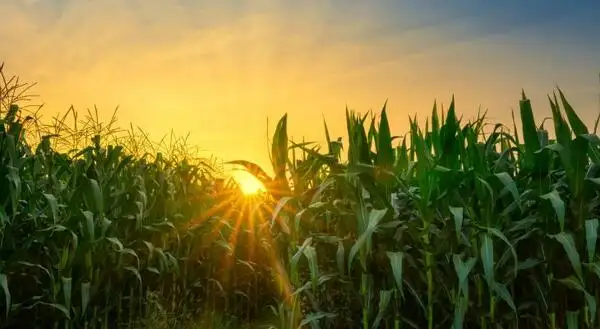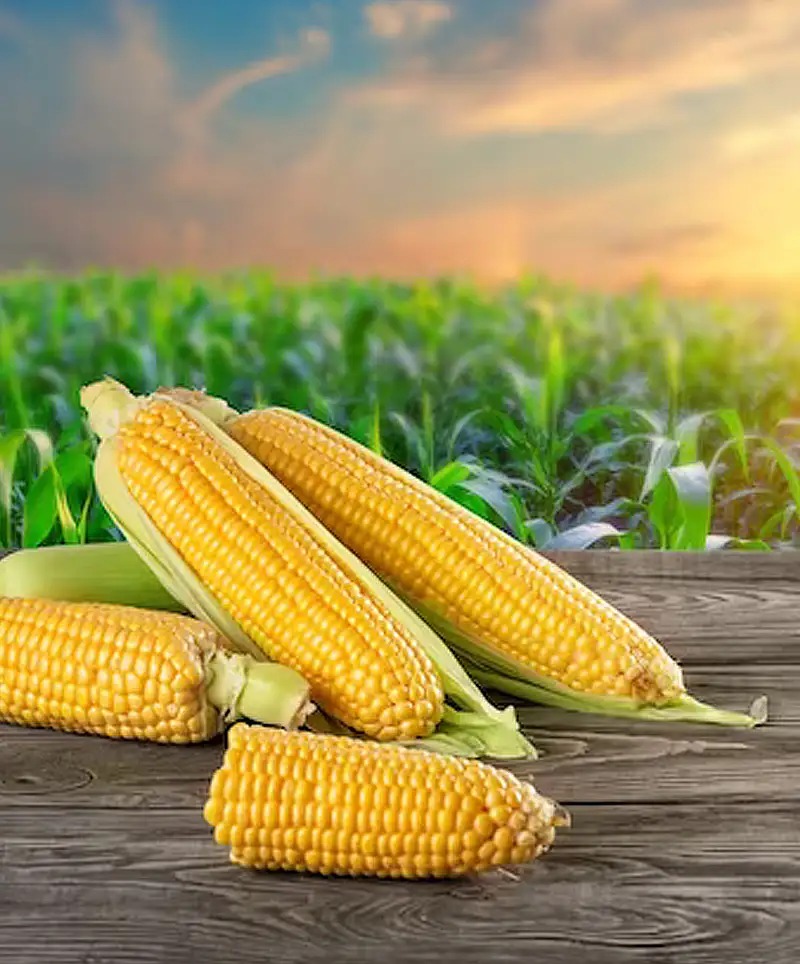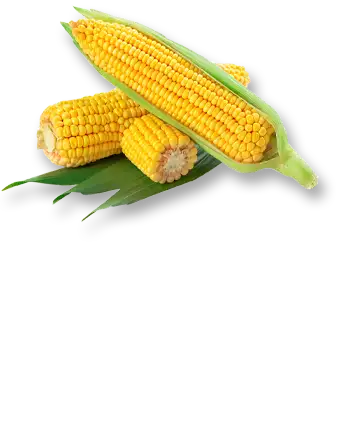A Kernel of Truth in Every Celebration
Hold onto your husks, folks! Maize Day is making its grand appearance the day after Thanksgiving, and it's no small niblet of a celebration. This corn-centric holiday, sprouting with charm and bursting with kernels of history, might at first glance seem like a quirky footnote among the myriad of festivities. But oh, how the tables turn when you delve into its stalk-studded story! Far from being a random addition to the post-holiday calendar, Maize Day is steeped in a rich tapestry of cultural, historical, and culinary significance that spans continents and millennia. As we prepare to cob together some tantalizing facts, intriguing anecdotes, and, yes, a few corny jokes (because how could we resist?), let’s embark on a journey to peel back the husk and uncover why Maize Day is truly a-maize-ing. It’s a celebration of a grain that has shaped civilizations, delighted palates, and even popped into the fabric of our culture. So grab your favorite corn-based snack, and let’s dig into the roots of this extraordinary day that shines bright in the sun!
A Historical Husk
 The history of maize is as rich and complex as its genetic makeup. This remarkable grain, known as corn in the U.S., began its journey as a wild grass called teosinte in the Oaxaca Valley of Mexico over 9,000 years ago. Teosinte and today's maize are so different in appearance that their connection was only discovered through genetic analysis. Imagine a grass with a few hard kernels, barely enough for a snack, transforming into the bountiful cobs we know today – a true Cinderella story of the plant world.
The history of maize is as rich and complex as its genetic makeup. This remarkable grain, known as corn in the U.S., began its journey as a wild grass called teosinte in the Oaxaca Valley of Mexico over 9,000 years ago. Teosinte and today's maize are so different in appearance that their connection was only discovered through genetic analysis. Imagine a grass with a few hard kernels, barely enough for a snack, transforming into the bountiful cobs we know today – a true Cinderella story of the plant world.
The transformation from teosinte to maize was no overnight fairytale. It resulted from generations of selective breeding by the ingenious indigenous peoples of Mesoamerica. These early agriculturalists saw the potential in this humble grass and, through careful cultivation, turned it into one of the most important food sources in human history. They didn’t just grow maize; they creatively cooked it, giving us culinary treasures like tortillas, tamales, and yes, even popcorn. Imagine the first person to hear those kernels pop – surely, it was the first “mind-blown” moment in culinary history.
When Christopher Columbus and other European explorers arrived in the New World, they were introduced to maize and quickly realized its value. Maize was brought back to Europe, spreading to Africa and Asia. This global journey of maize was no small feat. It required adaptation to various climates and cultivation techniques – a testament to its versatility and resilience.
The impact of maize on global cuisine and agriculture cannot be overstated. It became a staple in many countries, adapting to local tastes and needs. In Africa, it became a vital component of many diets, while in Europe, it found its way into polenta and other regional specialties. In Asia, maize adapted to local cuisines, showing its universal culinary appeal.
From a botanical underdog to a global agricultural superstar, maize's journey is a story of human ingenuity and the power of selective breeding. It's a grain that has fed nations and shaped them. As we celebrate Maize Day, we're not just celebrating a crop; we're honoring a plant that has been a partner in human civilization's journey, a journey as colorful and varied as the many types of maize grown worldwide today.
Kernel of Knowledge
So why dedicate an entire day to maize? It's a fair question, considering it's not your average backyard veggie. But that's precisely the point: maize isn't average at all. It's a cultural heavyweight, an economic juggernaut, and a scientific wonder. In the crops world, maize is like a multi-talented artist who is also a Nobel laureate. It's a staple food, a source of sweetener, fuel, and even art. Plus, it's got this quirky identity crisis, moonlighting as both a grain and a vegetable. Talk about a plant with an existential corn-drum!
In the United States, maize's resume is as diverse as impressive. That juicy steak on your plate? It was likely fattened on a diet rich in maize. That soda you're sipping? Sweetened with corn syrup. And when you fuel up your car, there's a good chance you're putting ethanol made from maize into the tank. It's not just food; it's a cornerstone of the American economy. But maize's influence isn't confined to the States. It spans the globe in a spectacular way.
Internationally, maize isn't just a crop; it's a lifeline. In many parts of the world, especially in Africa and Latin America, maize is more than just a dietary staple - it's a critical part of food security. For millions, the golden kernels of maize are a buffer against hunger and poverty. In some regions, maize is so vital that its harvest and availability can make or break entire communities. It's a plant that shoulders the weight of economies and sustains generations.
That's the beauty of maize. It's not just another item on the grocery list. It's a symbol of resilience, a testament to human ingenuity in agriculture, and a lifeline for countless people around the globe. Celebrating Maize Day isn't just about acknowledging a plant; it's about recognizing its pivotal role in our lives, from plates to gas tanks, and understanding its profound impact on global food systems. This is why we give maize its day in the sun, honoring a crop as versatile and essential as it gets.
Maize in Today's World
Let's shuck the seriousness for a moment. Maize is also a star of pop culture. It's in our movies (think Field of Dreams), our literature, and even our idioms – ever heard someone say they're "as high as an elephant's eye"? That's corn talk!
And let's not forget the corny jokes. Why shouldn't you tell secrets on a farm? Because the corn has ears! Okay, that might be a bit too corny, but you get the point.
Now, how do you celebrate Maize Day? You could go traditional with a corn roast or a maize maze (try saying that five times fast!). Or get creative in the kitchen with corn-based recipes from around the globe. How about a Mexican street corn fiesta or some Italian polenta party? The possibilities are as endless as a cornfield in Iowa.
Maize Day isn't just another ear in the calendar. It's a day to celebrate a plant that's fed nations, inspired cultures and even made a few appearances in our jokes. So next time you see a cob, remember it's not just corn – it's a piece of history, a scientific wonder, and a global celebrity. And that's worth celebrating!
Now go out there and make Maize Day pop!
Editor's Note: The author of this piece remains a mystery, but rest assured, we're on a mission to discover who it is. Once identified, they'll be hung by their ears!
Please Share our Content






 The history of maize is as rich and complex as its genetic makeup. This remarkable grain, known as corn in the U.S., began its journey as a wild grass called teosinte in the Oaxaca Valley of Mexico over 9,000 years ago. Teosinte and today's maize are so different in appearance that their connection was only discovered through genetic analysis. Imagine a grass with a few hard kernels, barely enough for a snack, transforming into the bountiful cobs we know today – a true Cinderella story of the plant world.
The history of maize is as rich and complex as its genetic makeup. This remarkable grain, known as corn in the U.S., began its journey as a wild grass called teosinte in the Oaxaca Valley of Mexico over 9,000 years ago. Teosinte and today's maize are so different in appearance that their connection was only discovered through genetic analysis. Imagine a grass with a few hard kernels, barely enough for a snack, transforming into the bountiful cobs we know today – a true Cinderella story of the plant world.








 "Sláinte!" is a traditional Irish expression used as a toast, equivalent to "Cheers!" in English.
"Sláinte!" is a traditional Irish expression used as a toast, equivalent to "Cheers!" in English.